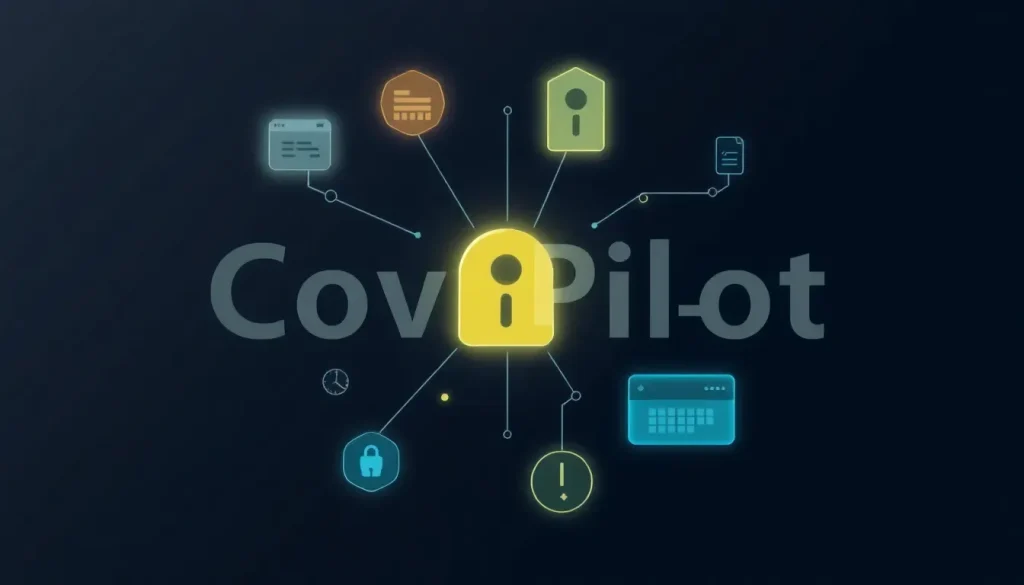Survey reveals Copilot holds valuable sensitive business data

As artificial intelligence continues to reshape the landscape of business operations, concerns regarding data privacy and security have taken center stage. Microsoft’s Copilot, designed to enhance productivity through AI, has sparked debates about the potential risks associated with handling sensitive business data. Recent findings underline the urgency of addressing these issues, prompting organizations to reevaluate their data protection strategies.
Understanding the Data Risks Associated with Microsoft Copilot
Microsoft’s introduction of Copilot has been met with enthusiasm, yet it has also raised alarms regarding data privacy. The tool, which integrates into existing Microsoft 365 applications, facilitates a variety of tasks by learning from user input. However, this capability comes with significant risks, particularly for organizations managing sensitive information.
A survey from Concentric AI, detailed in the 2025 Data Risk Report, reveals alarming statistics: Copilot accessed nearly three million confidential records per organization in just the first half of 2025. This data encompasses various sectors, including:
- Healthcare
- Financial Services
- Government
These industries are particularly vulnerable, as they often handle highly sensitive personal data, such as medical histories and financial records. The report indicates that users in these sectors engaged with Copilot approximately 3,000 times on average, raising concerns about the nature of interactions and the data being exposed.
How does Microsoft Copilot handle sensitive data?
Microsoft claims that Copilot adheres to stringent privacy and compliance standards, including the General Data Protection Regulation (GDPR) and the EU Data Boundary. However, the reality may be more complex. The AI tool stores data from user interactions, including specific prompts and responses, potentially exposing sensitive information if not managed properly.
Some key aspects of Copilot's data handling include:
- Storage of user interactions, which can include sensitive prompts.
- Integration with various applications that may contain confidential data.
- Reliance on organizational protocols to protect data effectively.
These factors underscore the importance of implementing robust data protection measures within organizations that utilize Copilot.
Is my data safe with Copilot?
The safety of your data when using Microsoft Copilot hinges on several variables. While Microsoft emphasizes compliance with privacy regulations, the responsibility also falls on organizations to establish effective guidelines and protections. Without these measures, organizations may unknowingly allow Copilot to access sensitive information.
To ensure a safer environment when using Copilot, organizations should consider the following steps:
- Implement strict user access controls to limit interaction with sensitive data.
- Conduct regular audits of AI interactions to monitor data exposure.
- Provide training to employees on best practices for using AI tools.
- Develop and enforce organizational policies regarding data privacy.
By adopting these measures, organizations can significantly reduce the risk of exposing confidential information through Copilot.
What are the risks of using Copilot?
As organizations increasingly integrate AI tools like Copilot into their workflows, the potential for data breaches rises. The survey findings indicate that over 30% of employee interactions with AI tools expose sensitive data, highlighting significant vulnerabilities. Key risks include:
- Unauthorized Access: Inadequate access controls may permit unauthorized users to view sensitive information.
- Data Leakage: Stored interactions can lead to unintentional data sharing if not properly secured.
- Compliance Violations: Failure to adhere to regulations can result in severe legal and financial repercussions.
Furthermore, recent cyberattacks on high-profile companies, such as Marks & Spencer and Jaguar Land Rover, showcase the potential fallout from data breaches, underscoring the imperative for vigilance.
Is Copilot safer than ChatGPT?
Comparing the safety of Microsoft Copilot to that of other AI tools, such as ChatGPT, requires an examination of their design and intended use. Both tools leverage large language models to assist users, but their data handling practices may differ significantly.
Factors to consider when evaluating safety include:
- Data Storage: Understand how each platform handles and stores user data.
- Compliance Standards: Assess the adherence to privacy regulations and frameworks.
- User Controls: Explore the options available to users for managing their data.
Although both tools aim to enhance productivity, the level of security and privacy protection they provide can vary widely. Organizations should conduct thorough assessments before adopting either tool.
Best Practices for Using AI Tools Securely
To mitigate the risks associated with using AI tools like Copilot, organizations should implement a robust framework for data protection. Here are some best practices to follow:
- **Create a Data Governance Policy:** Develop clear guidelines on how sensitive data should be handled when using AI tools.
- **Training and Awareness:** Educate employees on the importance of data privacy and secure use of AI applications.
- **Regular Risk Assessments:** Conduct periodic evaluations of AI usage and potential vulnerabilities.
- **Incident Response Plan:** Establish a protocol for responding to data breaches or security incidents involving AI tools.
By adhering to these recommendations, organizations can foster a safer environment while leveraging the capabilities of AI technologies.
As the integration of AI tools like Microsoft Copilot becomes increasingly common, understanding the implications for data privacy and security is crucial. For further insights on the subject, consider watching this informative video:




Leave a Reply